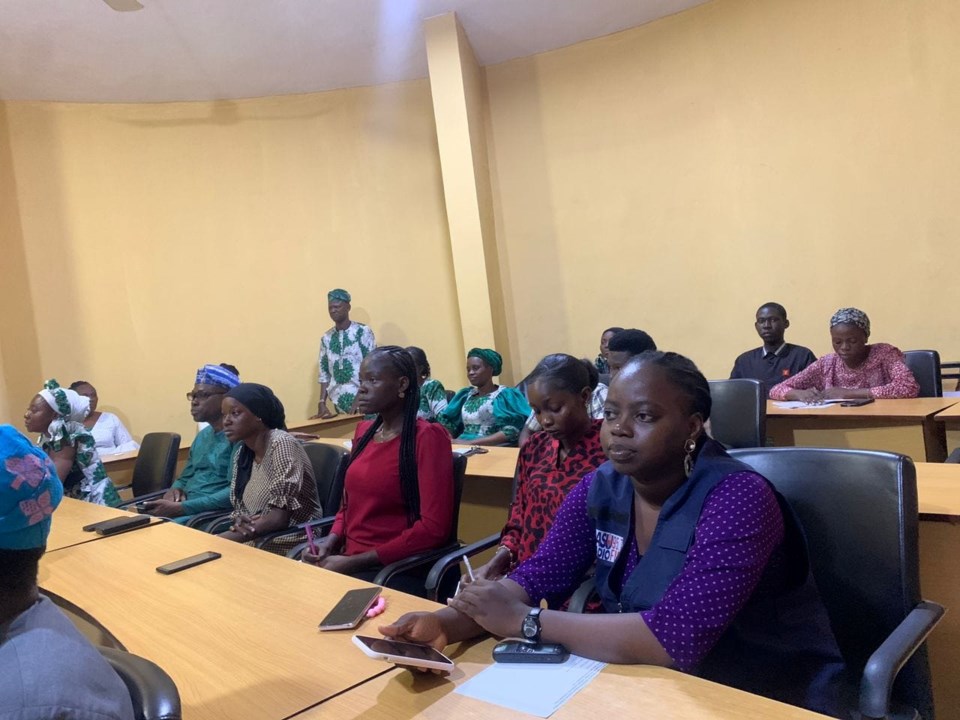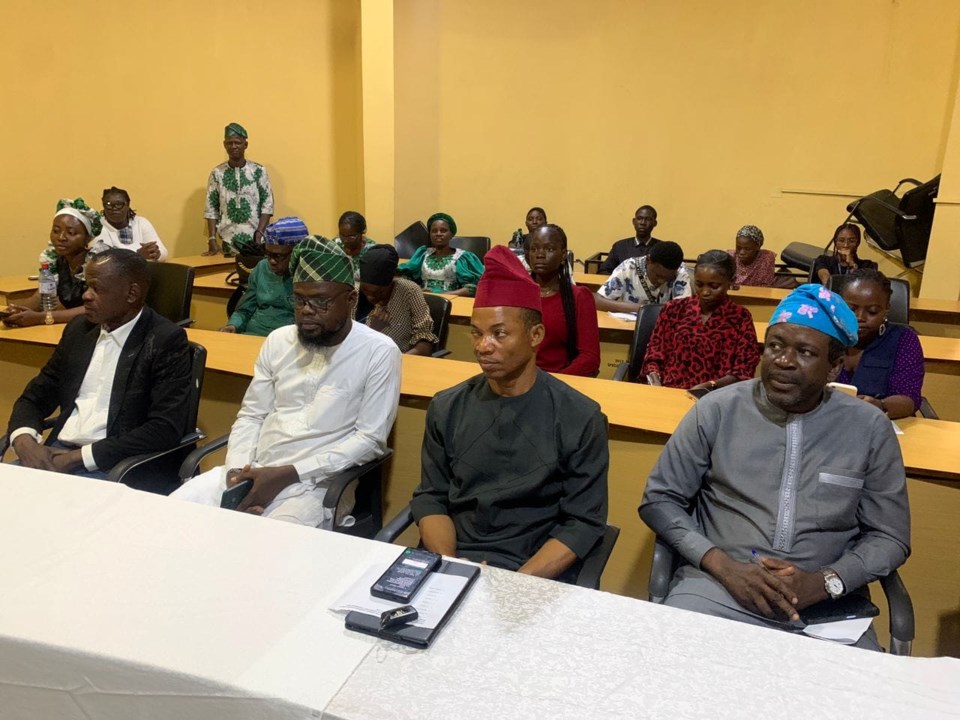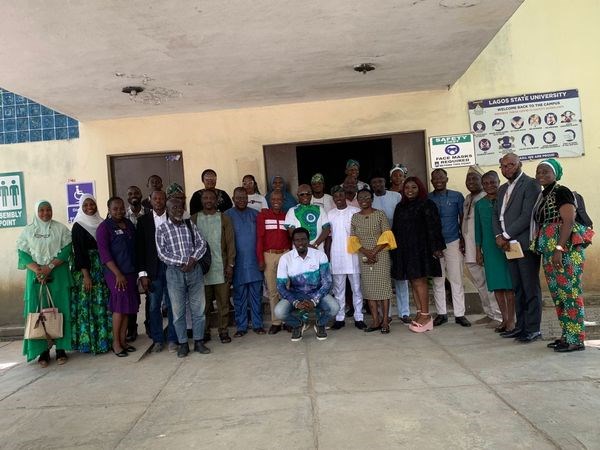TO commemorate the 64th independence anniversary of Nigeria, the Lagos State University Centre for General Nigerian Studies (LASU-CGNS), held its first-ever public lecture on Wednesday, October 2, 2024, at the Central Language Laboratory, Faculty of Arts, main campus, Ojo, Lagos.
The lecture, which was themed; "State of the Nation: The way forward”, had scholars dissecting some of the challenges facing Nigeria while proffering possible solutions.
The Director of LASU-CGNS, Professor Mubashiru Olayiwola B. Mohammed, in his address, appreciated God for making it possible for the CENTRE to have its first public lecture. He noted that the public lecture came at the right time and hoped that issues discussed at the lecture would shape the image of the country.
His words “…let us have a re-think, go back to the drawing board and do whatever we have to do well. The change you expect begins with you and me”.
Professor Mohammed equally appreciated the Deans present at the lecture, CGNS Board members, the Local Organising Committee led by Dr Sylvester Idowu, members of staff of CGNS and students for their support in making the programme a success.
The first lecture was delivered by the immediate past Head of Department, History and International Studies, Professor Adewunmi Falode. He opined that Nigeria’s problem is far from corruption and leadership, which are just branches of the problem. According to him, Nigeria’s problems stem from two issues, which are the foundation of the state of Nigeria and democracy.
Professor Falode believes that the mistake Nigeria made was adopting the model of European state creation without taking cognisance of Nigeria’s historical development.
His words “….state creation in Europe was organic. It is from their consciousness, something they built from the ground up, but for Nigeria and Africa, we were legislated into existence”.
The historian averred that the expensive nature of democracy is killing Nigeria, as well as other developing countries. He suggested that localisation of democracy by adopting a single term with a specific number of years, strong arm democracy and suspension of some liberties are some of the ways to address challenges facing Nigeria.
Dr Ayodele Yakub, from the Faculty of Education, Lagos State University, was the second speaker and he spoke on the theme of the lecture from the perspective of an educationist, public relations, and crisis communication expert. He stated that Nigeria has been facing challenges and trying to rebrand herself for decades but Nigeria’s image branding projects which started in 2004 have not recorded any successes because of brand eroders such as corruption, bad leadership, insurgency, flawed elections, money laundering, and human trafficking, among others.
Dr Yakub stated that countries like China, India, the USA, the UK, and South Africa have successfully rebranded themselves through strategic marketing and development. According to him, place branding can help Nigeria attract investment, tourism, and talent. He stated that addressing underlying challenges like corruption, infrastructure and ethnic divisions; developing a comprehensive national branding strategy; having a responsible and responsive Government; engaging citizens, experts, and international partners in the rebranding process of the country are ways forward to a better Nigeria.
The third speaker was the Sub-Dean of the Faculty of Communication and Media Studies, Lagos State University, Dr Sulaiman Hassan, whose perspective on Nigeria's challenges highlighted the lingering impact of colonialism on the country's governance and development.
Dr Hassan emphasised that Nigeria's problems stem from the disruption of its indigenous systems by colonial powers, who imposed their systems, including indirect rule. This disruption, he averred, led to the erosion of traditional institutions, such as the old Oyo Empire, where authority was well-defined and respected.
To birth a better Nigeria, Dr Hassan opined that the country needs to incorporate elements of indigenous governance like the old Oyo Empire, which can foster stability and progress as well as a firm and charismatic leader who can push for change, progress and development in the country.
The Assistant Director of LASU-CGNS, Dr Sylvester Idowu, was the last speaker, and he aligned with the contributions of Dr Hassan, adding that the state of Nigeria has derailed since the arrival of the colonialists. He opined that the country's problems stem from its unitary system of Government, which has not served the nation well. Dr Idowu suggested that there is a need to restructure the country for progress to occur.
The lecture was well attended by members of staff and students who also made meaningful contributions.




